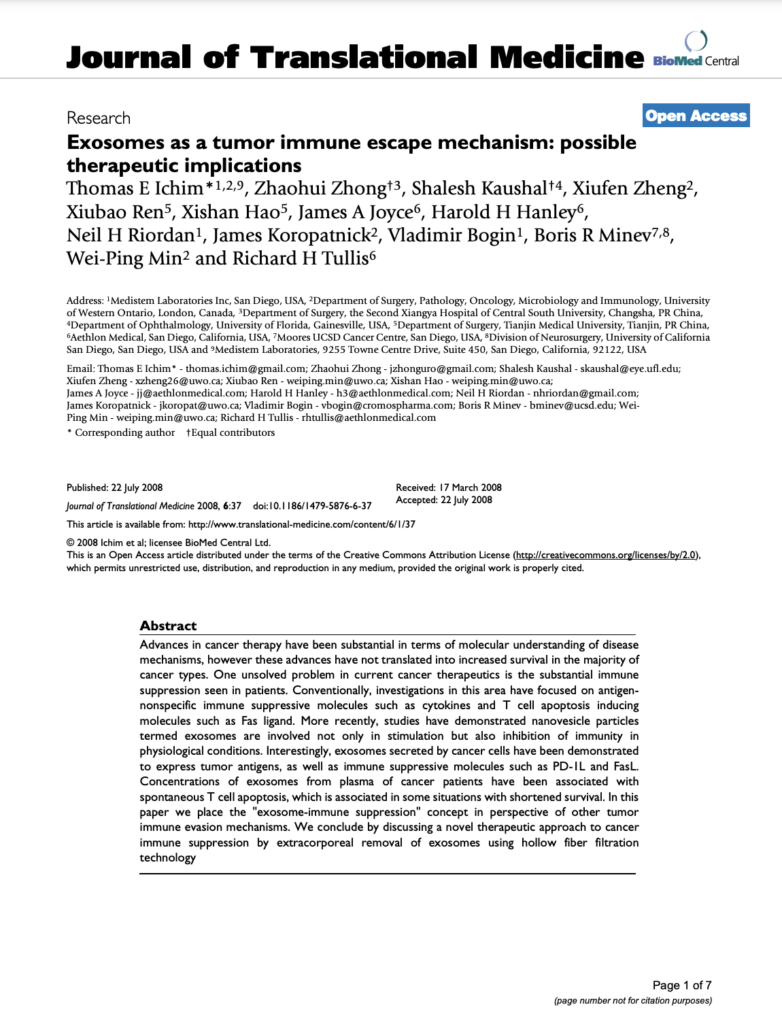July 2008
Exosomes as a tumor immune escape mechanism: possible therapeutic implications.
Journal Citation
J Transl Med. 2008 Jul 22;6:37
Authors
Ichim TE, Zhong Z, Kaushal S, Zheng X, Ren X, Hao X, Joyce JA, Hanley HH, Riordan NH, Koropatnick J, Bogin V, Minev BR, Min WP, Tullis RH.
Abstract
Advances in cancer therapy have been substantial in terms of molecular understanding of disease mechanisms, however these advances have not translated into increased survival in the majority of cancer types. One unsolved problem in current cancer therapeutics is the substantial immune suppression seen in patients. Conventionally, investigations in this area have focused on antigen-nonspecific immune suppressive molecules such as cytokines and T cell apoptosis inducing molecules such as Fas ligand. More recently, studies have demonstrated nanovesicle particles termed exosomes are involved not only in stimulation but also inhibition of immunity in physiological conditions. Interestingly, exosomes secreted by cancer cells have been demonstrated to express tumor antigens, as well as immune suppressive molecules such as PD-1L and FasL. Concentrations of exosomes from plasma of cancer patients have been associated with spontaneous T cell apoptosis, which is associated in some situations with shortened survival. In this paper we place the “exosome-immune suppression” concept in perspective of other tumor immune evasion mechanisms. We conclude by discussing a novel therapeutic approach to cancer immune suppression by extracorporeal removal of exosomes using hollow fiber filtration technology.

